According to the National Institutes of Health, 14 million Americans are currently affected by rosacea (rose-AY-sha), a chronic and rather painful skin condition. Rosacea—hardly a rose, but rather, a thorn—expresses itself on the face in the form of extremely sensitive skin, causing the following symptoms:
- blushing and flushing,
- permanent redness,
- swelling, burning, stinging,
- inflamed acne,
- and broken capillaries.
Rosacea is more common in adults, and is generally restricted to the nose, cheeks, chin and forehead, though it may also manifest on bodily areas. To make this topic more heated, the root cause of rosacea has not yet been discovered, but several factors are known to provoke this irritating skin condition.
Rosacea is often associated with “triggers” which cause these symptoms to fire and flare up. Check out our previous article Rosacea 101 to read about these triggers and how to avoid them in your lifestyle. Annmarie Skin Care customers have inquired more frequently about this skin disorder lately, so we wanted to shed some light on internal and external natural treatments to help alleviate and bring your skin back to a calm state. So long, skin suffering!
Internal Treatments
We often think of rosacea as an external skin condition, but our skin most certainly reflects our internal imbalances. Through a healthy diet free of irritating and inflammatory foods, rosacea can dramatically be improved. In the book, Rosacea: Your Self Help Guide, authors Arlen Brownstein (M.S, N.D) and Donna Shoemaker (C.N) encourage sufferers to eat a more alkaline forming diet to help combat rosacea. After all, the condition is essentially an inflammatory disorder of the skin, so if we eat to maintain a healthy pH balance within, we may reduce these unpleasant flare-ups, or at least make them less severe. To follow an alkaline diet:
- Eat a diet rich in raw and/or lightly steamed vegetables, greens, and whole grains such as brown rice, buckwheat, oats and quinoa.
- Drink fresh vegetable juices to alkalize your tissues and help reduce acidity. Consider buying a juicer and making this an important ritual in your diet.
- Eat low-sugar fruits such as blueberries and blackberries. These also provide a rich source of bioflavonoids.
- Avoid foods that cause flushing and vascular dilation in the skin, such as hot drinks, spicy foods, alcohol, coffee.
- Avoid beef, pork, lamb and the skin of chicken and turkey, as well as dairy. These acidic foods cause inflammation.
- Avoid fried foods, excess salt and sugar.
- Consider a vegetarian or vegan diet.
- Try supplements like a multivitamin, multimineral, an antioxidant formula, digestive enzymes, omega oil blends, and probiotics.
Understanding the connection between our GI tract and skin health is necessary to reduce the inflammatory response in our bodies. Another tool for healing rosacea is utilizing various herbal medicines, which have potential to remedy existing and exacerbating flare-ups.
The Healing Power of Herbs
Turmeric
Turmeric (Curcuma longa) has been used medicinally for over 4,000 years to treat a variety of disorders including inflammation, digestive issues, and certain cancers. Curcumin is the active ingredient and primary pharmacological agent in turmeric. One study, published by ethnobotanist James A. Duke, concluded that curcumin has the ability to surpass the effects of potent anti-inflammatory pharmaceuticals. He states that curcumin is a “multi-faceted anti-inflammatory agent, and studies of the efficacy of curcumin have demonstrated positive changes in arthritic symptoms.”
As for rosacea, which is also an inflammatory disorder, the curcuminoids present in turmeric can be taken internally or applied topically to soothe symptoms. It can reduce irritation, while improving circulation to inflamed areas on the skin. Turmeric is available in many forms including capsules, fluid extracts, and tinctures. One of our favorite brands is Organic India Turmeric Formula. Speak with your healthcare provider or naturopath for proper dosages for your specific inflammatory condition. For a topical solution, here’s how to make a turmeric face mask to reduce rosacea symptoms:
- Mix a few tablespoons of turmeric powder with plain yogurt, milk, or honey in a bowl. Create a paste with spreadable consistency.
- Apply to clean skin and leave the mask on for 20-30 minutes. (Be careful not to stain your clothes!)
- Rinse with tepid water. Once removed, splash skin with cold water. Pat dry face and apply your favorite Annmarie Skin Care facial oil (or any facial oil suitable for sensitive skin).
Neem
Neem, a tree Native to Southeast Asia and valued highly in Ayurveda, is another centuries-old remedy for skin health. Neem leaf, bark and oil are teaming with anti-inflammatory, anti-fungal, and antibacterial properties, making them excellent additions in skin care formulations. Neem is known to sooth irritation caused by rosacea flare-ups and acne. We include neem in our Herbal Facial Oil for Oily and Acne Prone Skin, which can be suitable for those suffering from acne and/or rosacea.
Neem is also high in vitamin E and rich in essential fatty acids, which boost lipid content and repair the skin’s barrier function. Another naturally occurring constituent of neem is quercetin, which supports the body’s inflammatory response. No wonder neem means “perfect, complete and imperishable” in Sanskrit, as it is quite clear this magical plant harnesses an abundance of healing properties.
Aloe Vera
Aloe, nature’s best hydrator, has been proven a safe, gentle and effective treatment for mild to moderate forms of rosacea. Applying this wonder plant to the skin can result in almost immediate relief from redness and irritation. It’s best to buy pure aloe vera gel (or an aloe plant to break open the leaf) because many over-the-counter aloe vera gels contain chemicals and preservatives that can increase symptoms.
Annmarie’s Anti Aging Serum is an incredible aloe-based hydrating serum that helps sooth and calm the skin. The rose distillate—a main component of the serum—is highly anti-inflammatory and has an astringent effect on any broken capillaries that may be present. Use this serum in conjunction with pure aloe vera gel (best applied twice daily) for rapid relief!
Coconut Oil
Not really an herb, but definitely a miracle, coconut oil is in a kingdom of its own. The benefits of this oil are so plentiful that it really deserves it’s own encyclopedia. In Bruce Fife’s book, The Coconut Oil Miracle, you’ll find a complete and comprehensive guide on endless health and beauty benefits of coconut oil. In terms of rosacea, coconut oil used topically and internally helps to reduce inflammation and support tissue healing and repair.
Several studies have shown that Demodex mites, which exist on the face of all humans, proliferate on facial skin of people who have rosacea. One study conducted in Mexico City’s General Hospital found much greater numbers of these mites in biopsies of the skin in patients with rosacea than in people without rosacea. This is an interesting (though, not surprising) correlation between the positive effects of coconut oil on rosacea due to its anti-parasitic properties. Many of our customers who suffer from rosacea love our Coconut Honey Mask. Best applied three times a week for mild to moderate forms of rosacea.
Lavender Essential Oil
Rosemary Gladstar, renowned American Herbalist—who I’ve had the pleasure of taking herbal clinic courses from—prides the various healing components of this amazing herbal oil. Lavender essential oil is famous for its ability to heal skin that has been damaged. It also has anti-inflammatory and antibacterial properties, making it a mild yet effective supplement to skin care products.
These many benefits are why we include it in several of the Annmarie Gianni products, such as our Herbal Facial Oil for Normal/Combination Skin and Anti Aging Facial Oil. You can also apply lavender oil directly to clean and affected areas of the skin (or diluted in a carrier oil of your choice). Lavender does contain geraniol, which can cause irritation in some sensitive people. Try patch testing a small area before general application.
Gentian Root and Burdock Root
Other herbs to consider for decreasing rosacea flare-ups include gentian root and burdock root. Digestive problems are linked to skin flare-ups—therefore, we need to maintain our digestive health to keep these symptoms at bay. Gentian helps to eliminate indigestion and cleanses the system. Burdock also offers help in detoxifying the body and can reduce rosacea flare-ups. Steep these roots in boiling water to make a daily detox tea.
The medical community generally favors conventional medicine for the treatment of rosacea. We disagree. We believe that it is necessary to explore and converse about holistic options for rosacea treatment. Remember that every individual has a unique internal chemistry, so these recommendations may or may not work for you, but we wanted to provide as much information on any natural remedies that have worked successfully for many people. For some, following an alkaline diet alone can help reverse ruthless symptoms. For others, eliminating chemicals in facial care products does the trick. It’s up to you to research, try, and observe what you think may work best for you. We are with you every step of the way!
What are your Rosacea success stories? What natural cures have worked for you? Please share.
By: Abby Stoecker, Licensed Esthetician & Graduate of Institute for Integrative Nutrition.
Sources:
Davis JM, Murphy EA, Carmichael MD, Zielinski MR, Groschwitz CM, Brown AS, Ghaffar A, Mayer EP. Curcumin effects on inflammation and performance recovery following eccentric exercise-induced muscle damage. Am J Physiol Regul Integr Comp Physiol. 2007 Mar 1 [Epub ahead of print] http://www.ncbi.nlm.nih.gov/pubmed/17332159
Aggarwal BB, Sundaram C, Malani N, Ichikawa H. Curcumin: the Indian solid gold. Adv Exp Med Biol. 2007;595:1-75. http://umm.edu/health/medical/altmed/herb/turmeric
James A. Duke, Phd., in the October, 2007 issue of Alternative & Complementary Therapies, and summarized in the July, 2008, issue of the American Botanical Councilpublication HerbClip. http://organixsouth.com/info/index.php/theraneem/articles-and-factoids/neem-a-centuries-old-remedy-for-problem-skin-hair
Rios-Yuil JM, Mercadillo-Perez P. Evaluation of Demodex folliculorumas a risk factor for the diagnosis of rosacea in skin biopsies. Mexico’s General Hospital (1975-2010). Indian J Dermatol 2013;58:157.
Barrows, Brady. ‘Rosacea 101: A Simple Method to Control Rosacea’. iUniverse (May 31, 2002) Brownstein, Arlen. ‘Rosacea: Your Self-Help Guide’. New Harbinger Publications (1 Feb 2001)
Fife, Bruce. ‘The Coconut Oil Miracle’. Avery Trade; 4th edition (September 9, 2004)
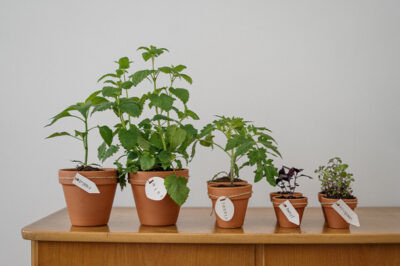

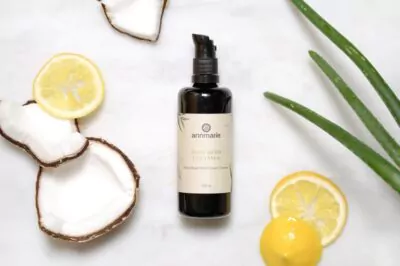
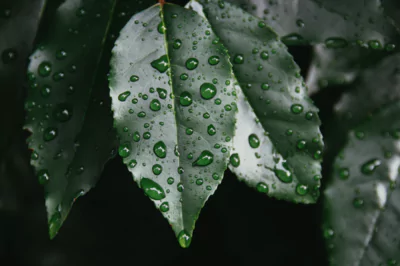
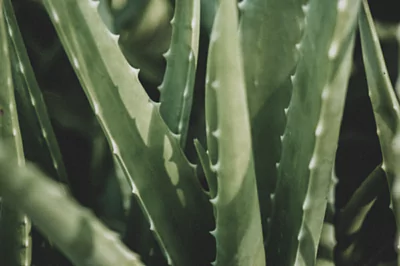
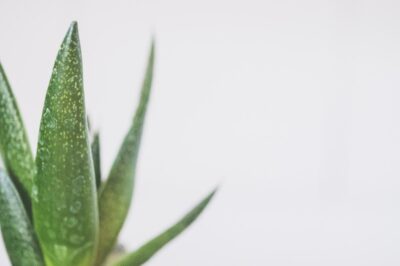

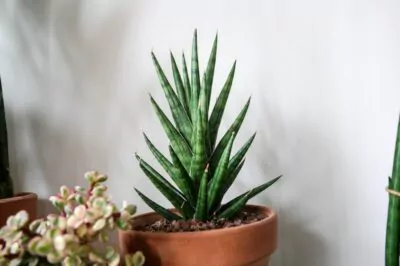
I’m curious if anyone has tried Burdock root yet? I’m about to. So frustrated with my Rosacea. Eating more greens, drinking alkaline water, taking supp’s. I’m deep into perimenopause hot flashes make Rosacea worse.
Is the Turmeric mask long lasting? Starting using a topical from the brand Osmosis, too.
Beth
I’ve tried burdock. I love it but have to be careful with dosage, especially at first. I got a little overly enthusiastic and my skin actually broke out. (I’m deep peri like you.) Turmeric is great – I take it twice a day. For acute inflammation (not just rosacea) I take it three times a day. The two other things that have been key for me are avoiding food triggers (chocolate, citrus, peanuts, soy, nightshades) and using a sunscreen with zinc routinely (even in the winter, even on days I don’t go outside). Usually my symptoms are very well managed, so much so that I “forget” about the dietary stuff. I bought Halloween candy early this year and well.
Regarding dosage for burdock and my personal experience – I got powdered root, and 1/4 – 1/2 teaspoon a day was okay, but more was too cleansing.
Mixing turmeric with quality face cream on for 25 min immidate results
Have had rosacea diagnosed after three visits to gp, a week of antibiotics later and it’s starting to look better. Also discovered that products containing alcohol have caused a reaction. Have spent 100s on beauty products that claim to help redness and breakouts. I started reading up on organic lotions and potions! For last two days of using a face mask made up of oats and natural yoghurt which soothed skin almost instantly I have also started applying a thin layer of pure coconut oil. I still have the red bumps associated with rosacea but the redness seems to have faded dramatically. Really hope this works for me 🙂
I’ve been applying coconut oil twice a day, am/pm after using a mild cleanser. I could see it working, the redness diminished quickly and the bumps are healing fast. I’m a believer in Coconut Oil for rosacea!
Coconut oil took away my redness and discomfort within a few hours. Definitely a miracle! I had a terrible flare up and I could not be happier with these results!
what is good for eczema
what is good for eczema?
We will definitely do an article about eczema soon!
Having a complete dental revision is what greatly reduced the rosacea I had. Removing the mercury, aluminum, nickel, and other toxic dental materials in my mouth. And removing the root canals. I didn’t have any extracted teeth.
Thanks for all you do! You are awesome!
Thanks so much for this information! I have suffered from Rosacea for a few years now, and I have noticed that ever since I have started using your skin products, my redness has decreased. Thanks so much for not only providing me with great skin care made with natural ingredients, but also for educating me about other options as well. I will definitely be trying some of the suggestions you offer here! 🙂
Hi, great and enlightening article. I’m new to the miracle of herbs and am soaking in anything I can learn like a sponge . What about Eczema? Also called Atopic Dermatitis. The symptoms are similar to Rosacea. I am a juicer and follow Kevin Gianni, Frederic Patenaude, and Dan McDonald. Just started using fresh Tumeric (Watch its orange dye-like coloring!!!). What would be the specific herbs best to consume or use for Eczema? Thanks!
Hi, GREAT post! I’ve almost cured my rosacea using sea buckthorn seed oil–wash with a soap containing the oil, then apply the oil on its own to skin. It got worse before better (some say that was the demodex die-off) but after a couple weeks all was much improved. Now I wash once a day with the soap and use the oil occasionally for maintenance.
Might you all consider adding this oil to one of your products?
Hi Meredith! We use sea buckthorn in the following products: Anti-Aging Serum, Anti-Aging Eye Cream, Anti-Aging Facial Oil, Herbal Facial Oil for Normal and Combination Skin, and the Herbal Facial Oil for Oily and Acne Prone Skin. 🙂